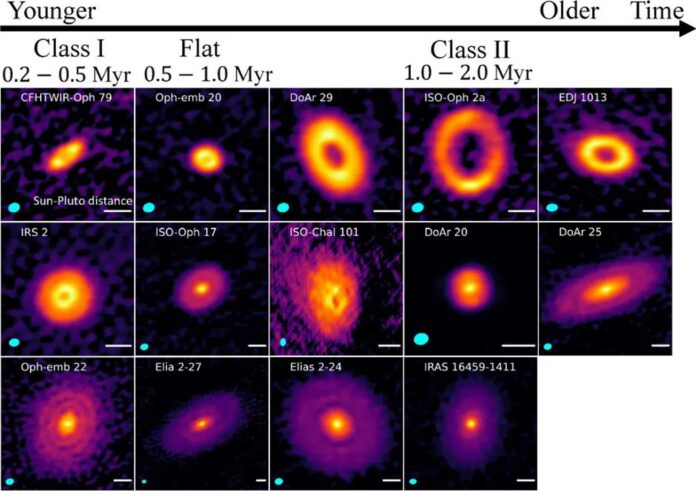The ALMA CAMPOS survey, conducted by an international team of astronomers, has revealed ring and spiral structures in very young planetary disks. This discovery suggests that the planet formation process might commence much earlier than previously believed.
The diverse structures observed in these young protoplanetary disks could serve as the sites where young protoplanets begin to form.
The research team utilized data from the Atacama Large Millimeter/submillimeter Array (ALMA) to obtain images of Class 0 and Class I planetary disks, considerably younger than the Class II disks observed in earlier surveys. Class II disks typically exhibit gaps and ring structures, signaling advanced planetary formation. The discovery of ring and spiral structures in the younger Class 0 and Class I disks suggests that the process of planet formation may commence at an earlier stage than previously thought.
Cheng-Han Hsieh, PhD Candidate at Yale University, said, “ALMA’s early observations of young protoplanetary disks have revealed many beautiful rings and gaps, possible formation sites of planets. I wondered when these rings and gaps started to appear in the disks.”
The recent study indicates that structural features in planetary disks start to develop when the disks are approximately 300,000 years old, suggesting a speedy formation process. Young disks exhibit various structures, including multiple rings and spiral formations, or may evolve into a ring with a central cavity. These observations challenge existing theories about planet formation, particularly regarding the early development of large, Jupiter-like planets.
Cheng-Han Hsieh said, “It is difficult to form giant planets within a million years from the core accretion model.”
The results were presented today at the 243rd Meeting of the American Astronomical Society.
